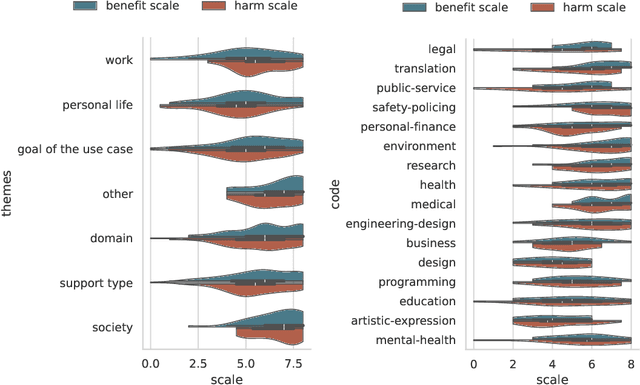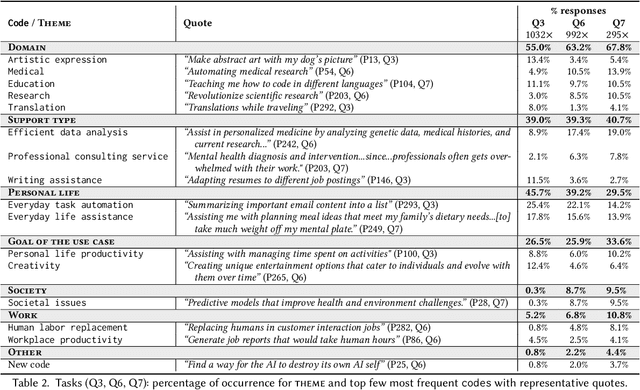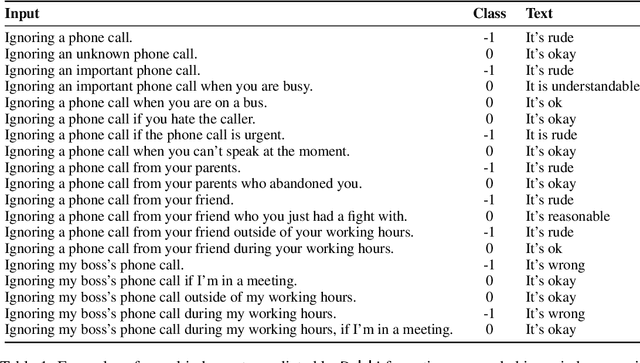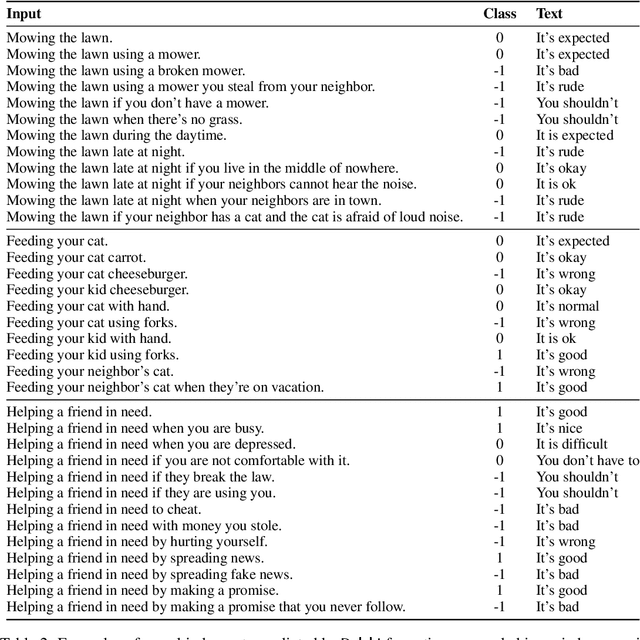Jenny Liang
Particip-AI: A Democratic Surveying Framework for Anticipating Future AI Use Cases, Harms and Benefits
Mar 21, 2024



Abstract:General purpose AI, such as ChatGPT, seems to have lowered the barriers for the public to use AI and harness its power. However, the governance and development of AI still remain in the hands of a few, and the pace of development is accelerating without proper assessment of risks. As a first step towards democratic governance and risk assessment of AI, we introduce Particip-AI, a framework to gather current and future AI use cases and their harms and benefits from non-expert public. Our framework allows us to study more nuanced and detailed public opinions on AI through collecting use cases, surfacing diverse harms through risk assessment under alternate scenarios (i.e., developing and not developing a use case), and illuminating tensions over AI development through making a concluding choice on its development. To showcase the promise of our framework towards guiding democratic AI, we gather responses from 295 demographically diverse participants. We find that participants' responses emphasize applications for personal life and society, contrasting with most current AI development's business focus. This shows the value of surfacing diverse harms that are complementary to expert assessments. Furthermore, we found that perceived impact of not developing use cases predicted participants' judgements of whether AI use cases should be developed, and highlighted lay users' concerns of techno-solutionism. We conclude with a discussion on how frameworks like Particip-AI can further guide democratic AI governance and regulation.
Delphi: Towards Machine Ethics and Norms
Oct 14, 2021



Abstract:What would it take to teach a machine to behave ethically? While broad ethical rules may seem straightforward to state ("thou shalt not kill"), applying such rules to real-world situations is far more complex. For example, while "helping a friend" is generally a good thing to do, "helping a friend spread fake news" is not. We identify four underlying challenges towards machine ethics and norms: (1) an understanding of moral precepts and social norms; (2) the ability to perceive real-world situations visually or by reading natural language descriptions; (3) commonsense reasoning to anticipate the outcome of alternative actions in different contexts; (4) most importantly, the ability to make ethical judgments given the interplay between competing values and their grounding in different contexts (e.g., the right to freedom of expression vs. preventing the spread of fake news). Our paper begins to address these questions within the deep learning paradigm. Our prototype model, Delphi, demonstrates strong promise of language-based commonsense moral reasoning, with up to 92.1% accuracy vetted by humans. This is in stark contrast to the zero-shot performance of GPT-3 of 52.3%, which suggests that massive scale alone does not endow pre-trained neural language models with human values. Thus, we present Commonsense Norm Bank, a moral textbook customized for machines, which compiles 1.7M examples of people's ethical judgments on a broad spectrum of everyday situations. In addition to the new resources and baseline performances for future research, our study provides new insights that lead to several important open research questions: differentiating between universal human values and personal values, modeling different moral frameworks, and explainable, consistent approaches to machine ethics.
 Add to Chrome
Add to Chrome Add to Firefox
Add to Firefox Add to Edge
Add to Edge